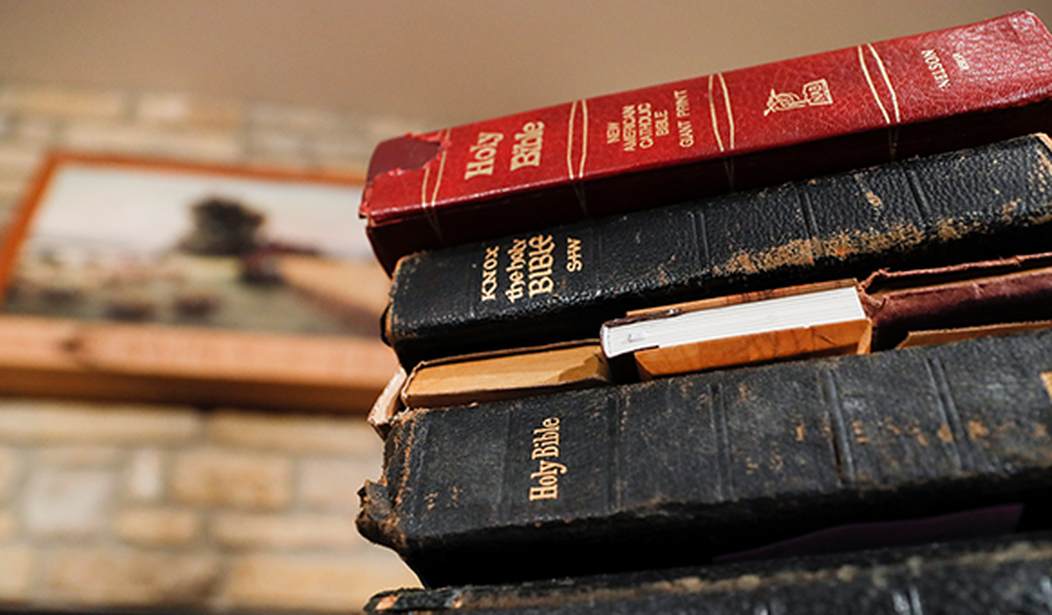Author's Note: All previous volumes of this series are here. The first 56 volumes are compiled into the book "Bible Study For Those Who Don't Read The Bible." "Part Two," featuring volumes 57-113, was published in December 2022.
Thanks for joining us today and for making last week's "What the Old Testament Says About Weakness" so popular. If you missed it, please take a few minutes to review, and while you do, the rest of us can watch this music video.
Now, let's get started! Throughout the Bible, weakness is shown as a part of human nature. While we experience weakness, we learn to rely on and trust God. Then, He can guide us to use the faith we have gained through weakness for His specific purpose.
There are different kinds of weaknesses, with physical ones being the most obvious. But other weaknesses can be just as debilitating—spiritual, moral, social, and mental. Jesus teaches that through weakness, God's power can be revealed. In the Sermon on the Mount, He said:
"Blessed are the poor in spirit, for theirs is the kingdom of heaven" (Matthew 5:3).
What does it mean to be "poor in spirit"? It means recognizing your weakness, so you will need God, seek Him out, and depend on Him. Having pride is the opposite of spiritual weakness. Who needs God when you are flexing your muscles and cruising along on top of the world? That is, until you cruise off the cliff, or an unexpected sinkhole swallows you whole. Then, in a state of weakness, you might suddenly realize the power of God's strength.
When Jesus embraced His humanity, He exemplified humble weakness as a servant leader who taught and lived among the downtrodden and social outcasts. Jesus invited the weary to follow Him:
Recommended
"Come to me, all you who are weary and burdened, and I will give you rest. Take my yoke upon you and learn from me, for I am gentle and humble in heart, and you will find rest for your souls. For my yoke is easy and my burden is light" (Matthew 11:28-30).
Before He died on the cross, Jesus was at His weakest and mocked for it:
"Those who passed by hurled insults at him, shaking their heads and saying, 'So! You who are going to destroy the temple and build it in three days, come down from the cross and save yourself!'
"In the same way, the chief priests and the teachers of the law mocked him among themselves. 'He saved others,' they said, 'but he can't save himself! Let this Messiah, this king of Israel, come down now from the cross, that we may see and believe.' Those crucified with him also heaped insults on him" (Mark 15:29-32).
More specifically, when Christ was hanging on the cross, Luke wrote:
"One of the criminals who hung there hurled insults at him: 'Aren't you the Messiah? Save yourself and us!' (Luke 23:38-43).
However, believers understand that His suffering and weakness paid our sin debt and brought salvation. His "defeat" turned into a Resurrection victory—the most significant moment in human history, transforming the world and continuing to do so ever since.
In Philippians, the Apostle Paul wrote an extraordinary passage that beautifully explains how Jesus's human weakness transformed into divine strength:
"In your relationships with one another, have the same mindset as Christ Jesus: Who, being in very nature God, did not consider equality with God something to be used to his own advantage; rather, he made himself nothing by taking the very nature of a servant, being made in human likeness. And being found in appearance as a man, he humbled himself by becoming obedient to death— even death on a cross!
"Therefore God exalted him to the highest place and gave him the name that is above every name, that at the name of Jesus every knee should bow, in heaven and on earth and under the earth, and every tongue acknowledge that Jesus Christ is Lord, to the glory of God the Father" (Philippians 2:5-11).
Paul eloquently discusses weakness in a practical way that we can apply to our lives. This passage from 2 Corinthians contains many familiar concepts and verses about the nature of weakness:
"I will not boast, except about my weaknesses. For even if I wish to boast, I will not be a fool, for I would be telling the truth, but I refrain from this so that no one may regard me beyond what he sees in me or what he hears from me.. Therefore, so that I would not become arrogant, a thorn in the flesh was given to me, a messenger of Satan to trouble me—so that I would not become arrogant.
"I asked the Lord three times about this, that it would depart from me. But he said to me, 'My grace is enough for you, for my power is made perfect in weakness.' So then, I will boast most gladly about my weaknesses, so that the power of Christ may reside in me. Therefore, I am content with weaknesses, with insults, with troubles, with persecutions and difficulties for the sake of Christ, for whenever I am weak, then I am strong" (2 Corinthians 12:5-10).
Notably, Paul reveals a physical weakness that causes his obvious chronic pain as "a thorn in the flesh" that God will not heal, "so that I would not become arrogant." The verse, "My power is made perfect in weakness," summarizes the relationship between the all-powerful God and human imperfection, which can involve suffering that He allows. This paradox sets up the other famous verse, "for whenever I am weak, then I am strong."
If you are experiencing weakness, confidently declare, "My power is made perfect in weakness," and "For whenever I am weak, then I am strong." The power of Jesus conveyed through these two passages will strengthen you. With that strength, you will overcome challenges and be motivated to pursue and embrace what He has in store for you.
Writing about weakness is a very difficult topic. It takes a mature faith, with patience and trust in God, to internalize Paul's writing, since the situations that caused the weakness will not end overnight.
Always remember that weakness is a vital part of faith. Whatever causes your weakness will only end when God chooses to end it. But it might not end, just as Paul's physical pain never subsided. God was in control of Paul's weakness, just as He is in your situation. As difficult as it may be, weakness is an opportunity to grow closer to God. Please bring all of this to prayer. Amen!
Myra Kahn Adams is a conservative political and religious writer. Her book "Bible Study For Those Who Don't Read The Bible" reprints the first 56 volumes of this popular study. "Part 2," reprints Vols. 57 –113. Order it here.
She is also the Executive Director of the National Shroud of Turin Exhibit. You can join our new effort in Orlando, Florida. Contact: Myraadams01@gmail.com
























Join the conversation as a VIP Member